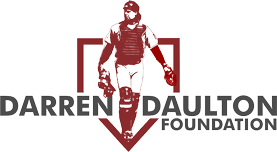What is Brain Cancer?
Brain cancer, encompassing both primary and metastatic tumors, presents significant health challenges. This comprehensive guide delves into the nature of brain cancer, its types, symptoms, diagnostic methods, treatment options, and survival rates.
Brain cancer occurs when cells within the brain grow uncontrollably, forming malignant tumors. These tumors can be classified as primary, originating within the brain, or secondary (metastatic), resulting from cancer cells that have spread from other parts of the body. The central nervous system, comprising the brain and spinal cord, is the primary site for these tumors.
Types of Brain Tumors
Brain tumors are broadly categorized based on their origin:
- Primary Brain Tumors: These originate within the brain and are further classified based on the cell type they affect.
- Glial Cell Tumors (Gliomas): Arise from glial cells, which support and protect neurons. Common types include astrocytomas, oligodendrogliomas, and glioblastomas.
- Meningiomas: Develop from the meninges, the protective membranes covering the brain and spinal cord.
- Pituitary Adenomas: Begin in the pituitary gland, affecting hormonal balance.
- Medulloblastomas: Typically found in the cerebellum, these are more common in children and can affect balance and coordination.
- Metastatic Brain Tumors: These occur when cancer cells spread to the brain from tumors located elsewhere in the body. Common primary sources include lung, breast, and kidney cancers.
Learn about the different types of brain cancer
Symptoms of Brain Cancer
The manifestations of brain cancer vary based on tumor size, type, and location. Common brain cancer symptoms include:
- Persistent headaches
- Seizures
- Cognitive impairments
- Motor skill difficulties
- Sensory changes
- Nausea and vomiting
- Vision or speech problems
It’s essential to consult a healthcare professional if these symptoms persist.
Recognize the symptoms associated with brain cancer
Diagnostic Methods
Accurate diagnosis involves a combination of neurological evaluations and imaging tests:
- Neurological Examination: Assessing motor functions, sensory responses, and cognitive abilities.
- Imaging Tests: Utilizing MRI or CT scans to visualize tumor presence and characteristics.
- Biopsy: Extracting tissue samples to determine tumor type and malignancy.
Treatment Options
Treatment strategies are tailored to tumor type, location, and patient health:
- Surgical Removal: Aim to excise the tumor while preserving neurological functions.
- Radiation Therapy: Employing high-energy beams to target and shrink tumor cells.
- Chemotherapy: Administering drugs to eliminate cancer cells, often used in conjunction with other treatments.
- Targeted Therapy: Utilizing medications that specifically attack cancer cells without harming normal tissues.
- Immunotherapy: Enhancing the immune system’s ability to recognize and combat cancer cells.
Each treatment modality has potential side effects, including fatigue, cognitive changes, and motor impairments. It’s crucial to discuss these with healthcare providers to manage and mitigate risks.
Survival Rates and Prognosis
Survival rates are influenced by tumor type, patient age, and overall health:
- Glioblastoma: A highly aggressive tumor with a five-year survival rate of approximately 5%.
- Meningioma: Generally benign with a favorable prognosis; many patients survive over ten years post-diagnosis.
- Oligodendroglioma: A tumor with varying survival rates based on age, with younger patients having higher survival rates.
It’s important to note that survival statistics are general estimates and may not predict individual outcomes. Advancements in treatments continue to improve prognoses.
The Role of the Immune System
The immune system plays a crucial role in combating brain cancer. Immunotherapy aims to boost the body’s natural defenses to fight tumors.
However, the brain’s unique environment poses challenges, such as the blood-brain barrier, which limits the effectiveness of some immune-based treatments.
Researchers are continually exploring ways to overcome these obstacles to enhance immunotherapy’s efficacy against brain tumors.
Side Effects of Treatment
Brain tumor treatments can lead to various side effects, depending on the therapy used:
- Surgical Removal: Risks include infection, bleeding, and potential damage to brain tissue, which can affect cognitive and motor functions.
- Radiation Therapy: Side effects may encompass fatigue, skin changes, hair loss, and cognitive impairments.
- Chemotherapy: Common side effects include nausea, vomiting, fatigue, and a weakened immune system.
- Targeted Therapy: Potential side effects vary based on the specific drug but can include skin rashes, diarrhea, and liver issues.
- Immunotherapy: Side effects may involve inflammation, flu-like symptoms, and, in rare cases, autoimmune reactions.
It’s essential for patients to discuss potential side effects with their healthcare team to manage and mitigate them effectively.
The Darren Daulton Foundation’s Contribution
The Darren Daulton Foundation is dedicated to providing financial assistance to individuals battling primary malignant brain tumors. Since its inception, the foundation has issued grants totaling over $500,000, aiding numerous families during challenging times. By alleviating financial burdens, the foundation alleviates financial burdens, enabling patients and their families to focus on treatment and recovery.
Supporting Brain Cancer Patients
Since its inception, the Darren Daulton Foundation has issued 195 grants, totaling over $500,000, to families struggling financially after a brain cancer diagnosis. These grants assist with medical expenses, household bills, and other financial obligations during challenging times.
For instance, the foundation has supported individuals like Shaun, who underwent multiple surgeries and required financial assistance during recovery, and Frankie, a two-year-old diagnosed with a rare pediatric brain sarcoma, whose family received grants to help cover medical and household expenses.
How to Apply for Assistance
Patients or caregivers seeking financial assistance can apply through the Darren Daulton Foundation’s website. The application process involves providing necessary documentation and information to determine eligibility. Detailed instructions and application forms are available on the foundation’s Financial Assistance page.
Ways to Support the Darren Daulton Foundation
The Darren Daulton Foundation relies on the generosity of donors, volunteers, and partners to continue its mission. Ways to support the foundation include:
- Donations: Financial contributions can be made through the Donate page on our website.
- Volunteering: Individuals can offer their time and skills to assist with events and operations.
- Partnerships: Businesses and organizations can collaborate with the foundation to enhance its reach and impact.
Brain cancer poses significant challenges, not only physically but also financially. Organizations like the Darren Daulton Foundation play a crucial role in supporting patients and families by providing financial assistance and resources.
If you or someone you know is battling brain cancer, exploring available support options can make a meaningful difference during such a challenging time.
Recent Developments in Brain Cancer Research
Advancements in brain cancer research continue to offer hope. Recent studies have explored the potential of combining immunotherapy drugs, such as ipilimumab, with traditional treatments like surgery, chemotherapy, or radiotherapy.
This combination has shown promise in treating aggressive brain tumors, turning previously fatal cases into manageable ones. Administered intravenously, ipilimumab enhances the immune system’s ability to target and destroy cancer cells. This approach has led to tumors becoming inactive in experimental patients, offering hope for improved survival rates.
Additional Resources
For more information on brain cancer, treatment options, and support resources, consider exploring the following:
- American Brain Tumor Association (ABTA): Offers comprehensive information on brain tumors, including types, treatments, and support services.
- National Brain Tumor Society (NBTS): Provides resources for patients and families, along with information on research and advocacy efforts.
- Brain Tumor Foundation: Offers support services, educational materials, and financial assistance programs for patients and caregivers.
These organizations can provide valuable support and information to those affected by brain cancer.
Final Thoughts
Navigating a brain cancer diagnosis is a complex and emotional journey. Understanding the types of brain tumors, recognizing symptoms, exploring diagnostic and treatment options, and accessing support resources are essential steps for patients and their families.
Foundations like the Darren Daulton Cancer Foundation exemplify the impact of community support, offering financial assistance and hope to those affected by brain cancer.
If you or someone you know is seeking assistance or looking to support brain cancer patients, reaching out to organizations like the Darren Daulton Foundation can provide meaningful help during challenging times.
Disclaimer: The information provided here by the Darren Daulton Brain Cancer Foundation is for educational purposes and general guidance only. It is not a substitute for professional medical advice. Always seek the advice of your physician or other qualified health provider.



